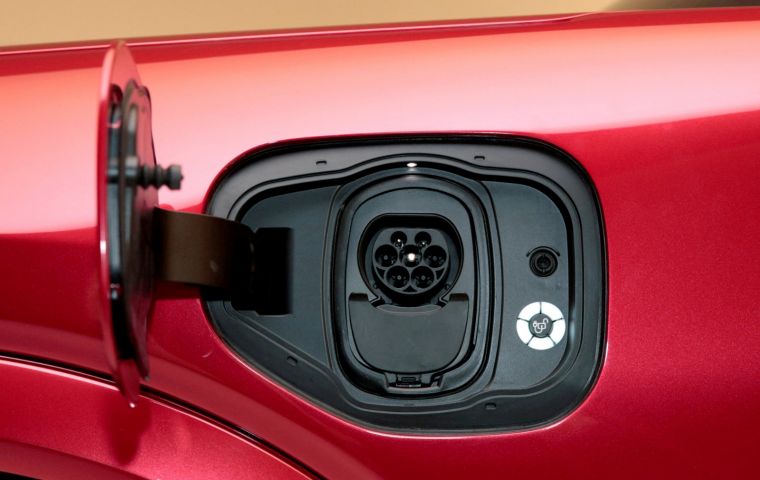MercoPress. South Atlantic News Agency
Argentina launches Sustainable Transportation Plan
 The plan is to generate savings for the country, by reducing and subsequently substituting energy imports
The plan is to generate savings for the country, by reducing and subsequently substituting energy imports The Government of Argentina Thursday launched the National Sustainable Transportation Plan aimed at achieving 2030 goals regarding energy transition for passenger, cargo, and private vehicles.
Transport Minister Alexis Guerrera's roadmap seeks to promote the use of cleaner energies for all modes of vehicles promoting the reduction of Greenhouse Gas (GHG) emissions and their effect on the country and the region.
The plan is to generate savings for the country, by reducing and subsequently substituting energy imports, promoting national industry while taking care of the health of people and the planet, Argentine authorities explained.
“With the launching of the National Sustainable Transportation Plan, within the Argentine commitment to reach the emission goals for the next few years, we are working together with other ministries and the entire national government. It is a tool to coordinate the efforts and that has as its axis the incorporation of gas, but also with a perspective to electromobility, which provides the optimization of resources, and creating new regulations,” said Guerrera.
“We are talking about a very strong impact if we gradually achieve by 2023 to transform everything that mostly moves with diesel to gas, and generating a large working table with all national and international actors. This work is between all of us, it is for all of us and it is for Argentina,” he added.
The Plan includes the renewal and adaptation of fleets to natural gas; electric mobility and the incorporation of new technologies to supply cargo and passenger vehicles.
The Plan is focused on energy transition to gradually and safely change the transportation matrix while raising awareness of the importance of natural resources. The goal is also to reduce the environment's damage. Gender and intergenerational equality are also key issues, as will be an environmental liability, which consists of reducing the impact of waste, debris, and disused or obsolete materials.
“We talk a lot about gas because it is the natural resource that is most available in Argentina and has a distribution chain that is the most extended in the country. With YPF we have generated productive corridors, with Enargas we work on high flow peaks so that long-distance buses and trucks have to wait less and less at service stations,” Guerrera also noted.
By 2030, 15,000 buses are expected to be running on gas, generating a saving of 1,800 million liters of diesel; 150,000 trucks running on gas, reducing diesel consumption by 2,600 million liters; and 15% of the total vehicle fleet will be gas-powered, while a large percentage of state-owned vehicles will be hybrid and electric.




Top Comments
Disclaimer & comment rulesCommenting for this story is now closed.
If you have a Facebook account, become a fan and comment on our Facebook Page!